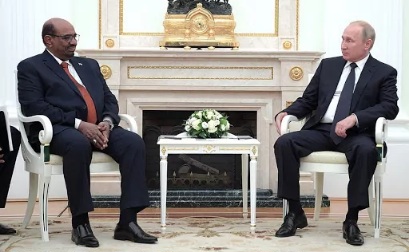A Major Military Deal in Africa
In February 2025, Sudan and Russia signed a deal allowing Russia to build a naval base on Sudan’s Red Sea coast. This agreement will last for 25 years and allows Russia to station up to four navy ships, including nuclear-powered vessels, with 300 military personnel. Sudan hopes this deal will bring economic benefits, but there are concerns about its impact on local people and the country’s future. For Africans at home and in the diaspora, this is an important moment to examine the consequences of the deal.
Historical Background: A Long Time Coming
The idea of a Russian naval base in Sudan is not new. Talks began in 2017 under Sudan’s former leader, Omar al-Bashir. A preliminary deal was signed in 2020, but Sudan’s political instability caused delays. Now, with Russia strengthening its ties in Africa, the agreement has finally been approved.

Economic Impact: Who Will Benefit?
Sudan hopes this deal will bring money and jobs. Russia has promised to invest in Sudan’s infrastructure, including ports and roads. However, history shows that deals like this often benefit only the elites, while ordinary citizens see little improvement in their lives. The Sudanese diaspora, especially business owners, may want to explore investment opportunities, but they should also be aware of possible corruption and instability.
Geopolitical Effects: Africa on the World Stage
Russia’s presence in Sudan changes the balance of power in the Red Sea, one of the world’s busiest trade routes, where 12% of global trade passes. Russia now joins the U.S. and China, which also have bases in the region. This raises concerns: Will Sudan face pressure from Western countries unhappy with Russia’s growing influence? Will it affect Sudan’s ability to trade and negotiate with other nations? The African diaspora should watch how this deal shapes Sudan’s future international relationships.
Human Rights Concerns: Impact on Local Communities
Military bases often come with social problems. Some worry that the Russian base could lead to local displacement, restricted access to certain areas, or even conflicts between Sudanese citizens and foreign military personnel. Sudanese at home and abroad must stay informed and advocate for their communities to ensure their rights are protected.
Environmental Risks: Protecting the Red Sea
The Red Sea has a fragile ecosystem that supports fishing communities and tourism. The construction and operation of the base could harm marine life and pollute the waters. African environmental activists and the Sudanese diaspora must push for policies that ensure development does not come at the cost of long-term environmental damage.
Cultural and Educational Opportunities
Despite the concerns, the agreement could lead to cultural and educational exchanges between Sudan and Russia. There may be opportunities for Sudanese students to receive scholarships to study in Russia, learn new languages, or engage in scientific and artistic collaborations. These benefits should be explored alongside the military and economic aspects of the deal.
What Should Africans Do?
The Sudan-Russia naval base deal is a major geopolitical move that will affect Sudan, Africa, and the global balance of power. While it offers potential economic and educational benefits, it also raises concerns about human rights, environmental impact, and foreign control over African resources.
For Africans, especially those in the diaspora, this is a time to stay informed and engaged. Whether through investment, advocacy, or cultural exchange, they must ensure that this deal serves the interests of the people and not just political elites or foreign powers. The future of Sudan—and Africa—depends on how well its people take charge of their own destiny.
